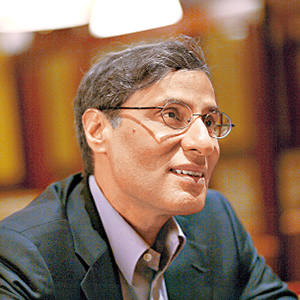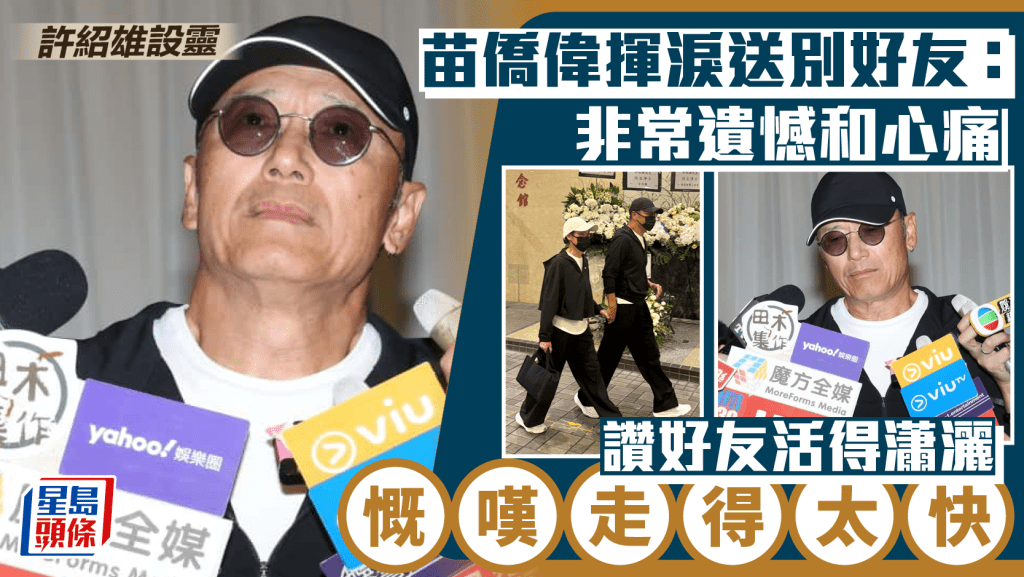Michael Chugani 褚简宁 - To take a stand|又中又英

I recently explained why I began this column years ago. My aim was to point out English errors politicians and government officials made without embarrassing them. I later transitioned (changed, adjusted) to writing about idioms, wine, food, travel, and other topics. I used these topics to explain English words and expressions. I rarely took a stand on the issues I wrote about. To "take a stand" means to strongly express an opinion or to support an issue. You are taking a stand on free speech if you believe in it and are not afraid to express your opinion about it.
But today I will take a stand after reading about a Hong Kong secondary school student who was ordered by his school to cut his long hair. The Equal Opportunities Commission (EOC) has agreed to investigate his complaint but insisted its job is to mediate, not determine right from wrong. This mealy-mouthed statement is why I never had much faith in the EOC. To be mealy-mouthed means to be afraid to say directly or honestly what you mean. Mediation is, of course, the best option but if mediation fails the EOC has a duty to determine right from wrong.
The school is wrong in my opinion. I have always believed in free expression. When a Hong Kong TV station hired me as a young reporter many years ago, I told my boss I will not cut my shoulder-length hair. He said I could keep my long hair even though I had to appear on TV. US courts have regularly ruled against schools that ordered students to cut their long hair because free expression is an important part of the US Constitution. There is nothing wrong with male students keeping their hair long if the hair is clean and tidy. Legislator and school principal Tang Fei indirectly warned the EOC against siding with the student. The Sikh religion requires males not to cut their hair. Will Tang Fei expel a Sikh student with long hair if the student chooses not to wear a turban?
*****
我最近解释过,多年前为何会开始写这个专栏。我的目的是去指出政客与政府官员们所犯的英语错处,而不使其难堪。我后来转变至(transitioned)写成语、美酒、食物、旅行及其他题目,透过这些题目去解释英文字词和习语。关于我写的题目,我很少会 took a stand——to "take a stand" 是指去采取一个坚定的立场或去支持一个议题。我若你相信言论自由,也不害怕直抒己见,那你就是力挺(taking a stand)言论自由。
但今天,当读到一个香港中学生被学校勒令要剪去长发,我要表达一个强烈的意见(take a stand)。平等机会委员会同意调查他的投诉,但坚持其职责只是去调解,而不是去判断谁对谁错。这种mealy-mouthed的说法,是我从未对平机会有甚么信心的原因。To be mealy-mouthed是指说话转弯抹角、委婉不直率的。当然,调解是最佳的做法,但若调解失败,那平机会便有责任去判断当中对错。
在我看来,学校是错的。我总是信奉自由的表达。许多年前一间香港的电视台聘我为初级记者时,我跟老板说我不会剪掉我那长及肩膊的头发。他说,虽然我要出镜,但我应该保留我的长发。美国法院就已恒常否决学校勒令学生剪去长发,因为自由表达是美国宪法的重要一环。只要头发保持整洁,男学生要留长头发根本没有问题。立法会议员及校长邓飞间接地警告平机会勿站于那位学生的一边。锡克教要求男性不能剪短发。若一名留了长发的锡克教学生选择不去包头巾,邓飞是否又要将他逐出校?中译:七刻
[email protected]
Michael Chugani 褚简宁
But today I will take a stand after reading about a Hong Kong secondary school student who was ordered by his school to cut his long hair. The Equal Opportunities Commission (EOC) has agreed to investigate his complaint but insisted its job is to mediate, not determine right from wrong. This mealy-mouthed statement is why I never had much faith in the EOC. To be mealy-mouthed means to be afraid to say directly or honestly what you mean. Mediation is, of course, the best option but if mediation fails the EOC has a duty to determine right from wrong.
The school is wrong in my opinion. I have always believed in free expression. When a Hong Kong TV station hired me as a young reporter many years ago, I told my boss I will not cut my shoulder-length hair. He said I could keep my long hair even though I had to appear on TV. US courts have regularly ruled against schools that ordered students to cut their long hair because free expression is an important part of the US Constitution. There is nothing wrong with male students keeping their hair long if the hair is clean and tidy. Legislator and school principal Tang Fei indirectly warned the EOC against siding with the student. The Sikh religion requires males not to cut their hair. Will Tang Fei expel a Sikh student with long hair if the student chooses not to wear a turban?
*****
我最近解释过,多年前为何会开始写这个专栏。我的目的是去指出政客与政府官员们所犯的英语错处,而不使其难堪。我后来转变至(transitioned)写成语、美酒、食物、旅行及其他题目,透过这些题目去解释英文字词和习语。关于我写的题目,我很少会 took a stand——to "take a stand" 是指去采取一个坚定的立场或去支持一个议题。我若你相信言论自由,也不害怕直抒己见,那你就是力挺(taking a stand)言论自由。
但今天,当读到一个香港中学生被学校勒令要剪去长发,我要表达一个强烈的意见(take a stand)。平等机会委员会同意调查他的投诉,但坚持其职责只是去调解,而不是去判断谁对谁错。这种mealy-mouthed的说法,是我从未对平机会有甚么信心的原因。To be mealy-mouthed是指说话转弯抹角、委婉不直率的。当然,调解是最佳的做法,但若调解失败,那平机会便有责任去判断当中对错。
在我看来,学校是错的。我总是信奉自由的表达。许多年前一间香港的电视台聘我为初级记者时,我跟老板说我不会剪掉我那长及肩膊的头发。他说,虽然我要出镜,但我应该保留我的长发。美国法院就已恒常否决学校勒令学生剪去长发,因为自由表达是美国宪法的重要一环。只要头发保持整洁,男学生要留长头发根本没有问题。立法会议员及校长邓飞间接地警告平机会勿站于那位学生的一边。锡克教要求男性不能剪短发。若一名留了长发的锡克教学生选择不去包头巾,邓飞是否又要将他逐出校?中译:七刻
[email protected]
Michael Chugani 褚简宁
最Hit
































